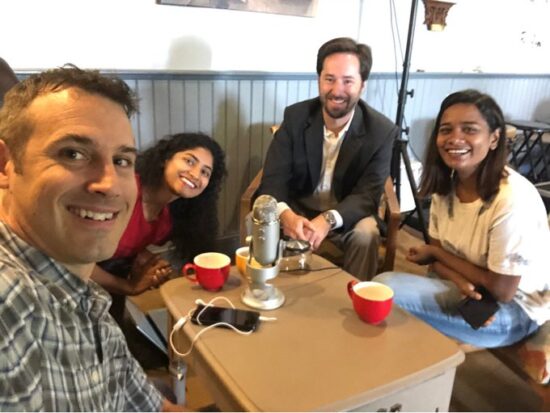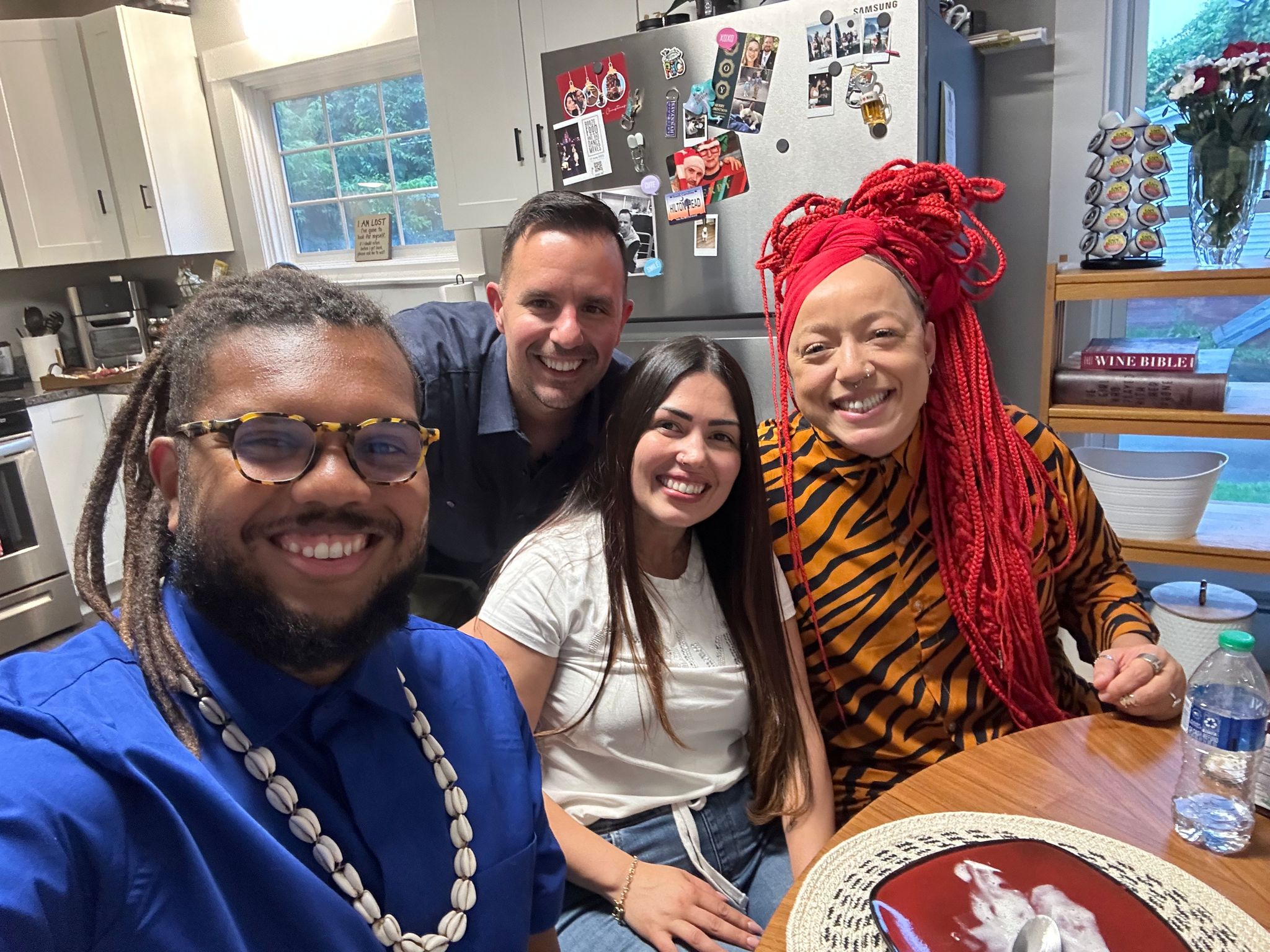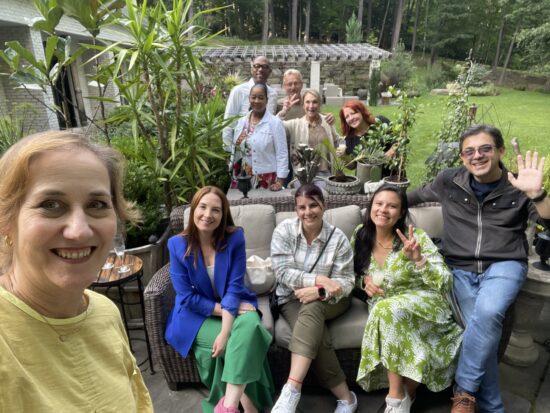By Tim Horgan, Executive Director of World Affairs Council of New Hampshire
Editor’s Note: February 16 is Citizen Diplomacy Day, a day first recognized by Congress in 2011 to commemorate our organization’s 50th anniversary and our Network’s important role in building people-to-people connections through international exchange. In celebration of this day, we asked leaders from across the Global Ties Network to reflect on how citizen diplomacy humanizes the world, both locally and globally, and why this work matters.

Tim Horgan (second from right) and IVLP participants gather together for a podcast recording. All photos provided by the World Affairs Council of New Hampshire.
The world, people tell us, is a scary place that may fall apart at any minute. With major wars ongoing, the lasting effects of a global pandemic, a growing great power rivalry, and other challenges, it is not difficult to see why many feel this way. As the world approaches the 24th annual Citizen Diplomacy Day on February 16, let us all commit ourselves to telling a better story about the world, a story we see every day: the power of citizen diplomacy to change the world.
Throughout the Global Ties Network, new connections are made each day, and the world becomes a little bit smaller. In this ritual of sharing best practices, community, and personal experiences, both the host and the visitor have the opportunity to better understand each other and humanize global experiences. Rather than taking a bird’s eye look at the issues facing the world, these people dive deep into problems and solutions, crafting new ideas that they can implement across borders. While it remains difficult to draw a direct line between a meeting or an experience a visitor had and a positive change in their home country, one cannot deny the power of exchanges to shape the world.
Simply by looking at the prestigious list of alumni of the International Visitor Leadership Program (IVLP), the number of people who have gone on to lead their country, community, sector, or organization remains the best indicator of the power this program retains. Beyond that, the true impact becomes clear through the changing perceptions and sharing of diverse ideas that occur on both sides of the conference or dinner table. Surely, anyone who has met with a decent number of international visitors can pinpoint the time someone came from a country which they held a negative opinion about; whether for the state of their economy, the perceived values their country holds, or any other reason. Once you sit down with this person and connect with them, these biases melt away and the common humanity remains.

U.S. and international counterparts connect through home hospitality.
Over the past 15 years of working within this amazing network, I have a broad set of stories, both big and small, that can illuminate the a-ha moments that citizen diplomacy facilitates. Trying to pick one is always difficult, but I think the best is the visitor from India who visited a nonprofit coffee shop that works to fight human trafficking. She had wanted to start something similar back home and this was a once-in-a-lifetime opportunity to learn and share. After the meeting concluded, the visitor and the executive director of the coffee shop teamed up to raise money that allowed two interns to spend five months in New Hampshire learning the ins– and– outs of running this uniquely formatted nonprofit. Without this direct experience, getting their own shop set up to help trafficked women in India would have been much more difficult.
Looking back on the amazing experiences of meeting people from over 180 different countries, I cannot help but think about how far the new connections I curated for thousands of visitors have spread around the world. I have helped to plant the seeds of change in all these countries, but the hard work of cultivation is done by those who we have met through these programs. As we always tell our participants, this is the start of the conversation, and it is up to them to create the changes needed.
So, as we approach Citizen Diplomacy Day, as well as the Global Ties U.S. National Meeting in March, I hope you will join me in telling positive stories about how citizen diplomacy opens eyes to positive global stories, creates connections that uniquely impact the world, and generally makes the world a better place. We could all use a little more optimism in our days and who better to provide it than our amazing global networks.

An IVLP group is all smiles while relaxing and enjoying New Hampshire’s outdoors.
